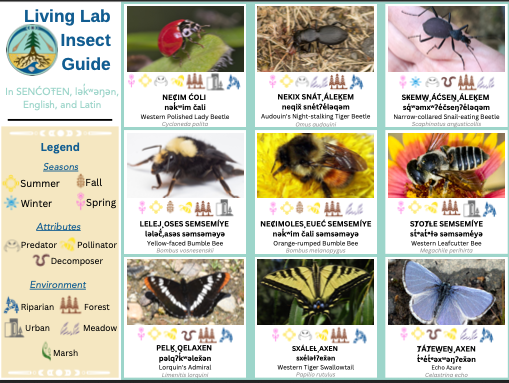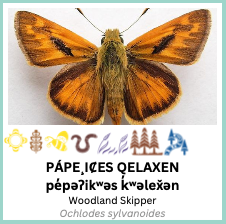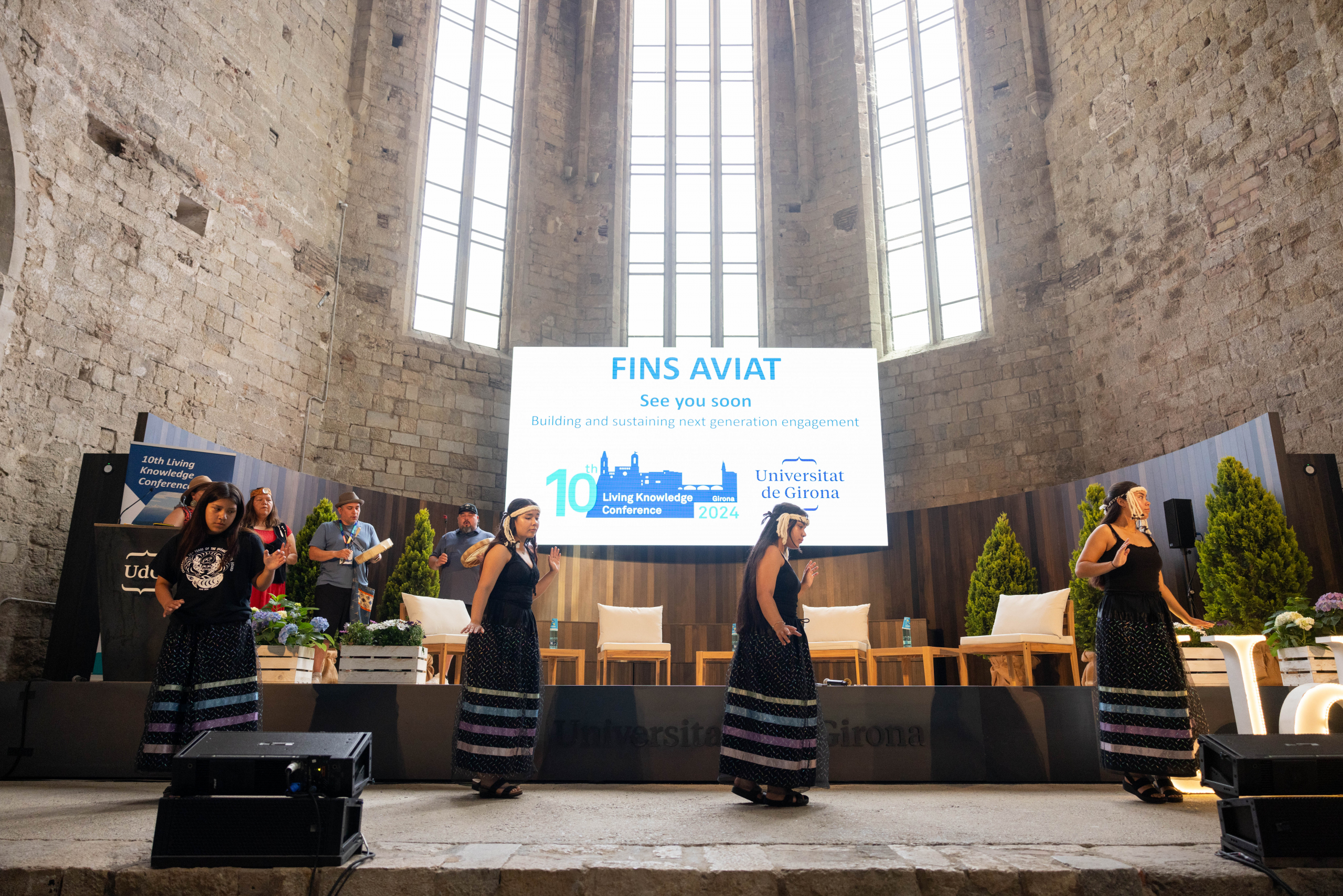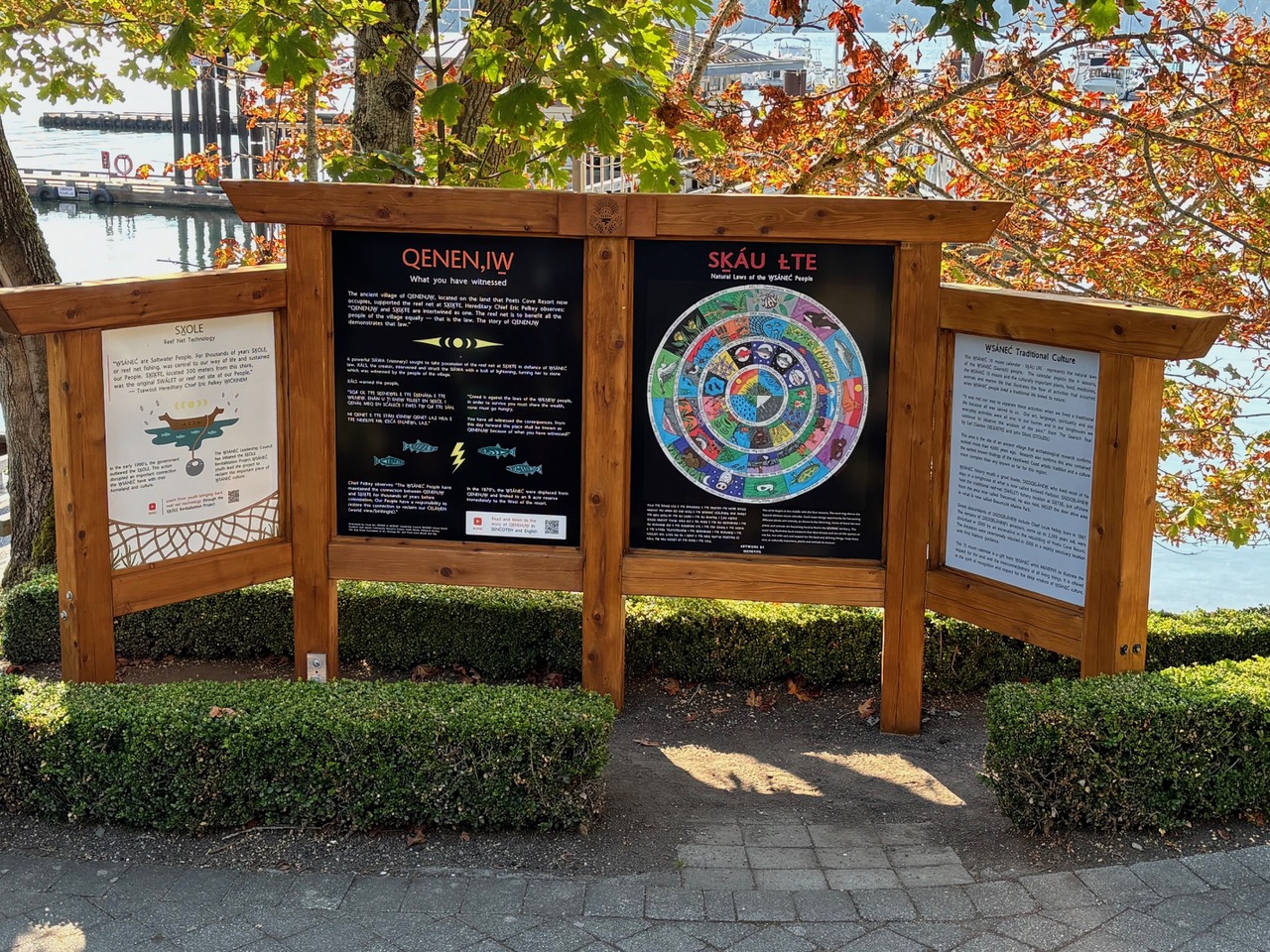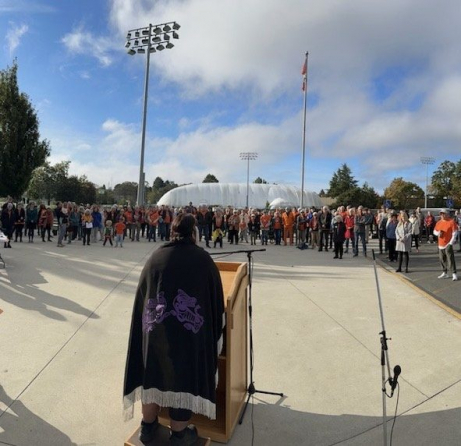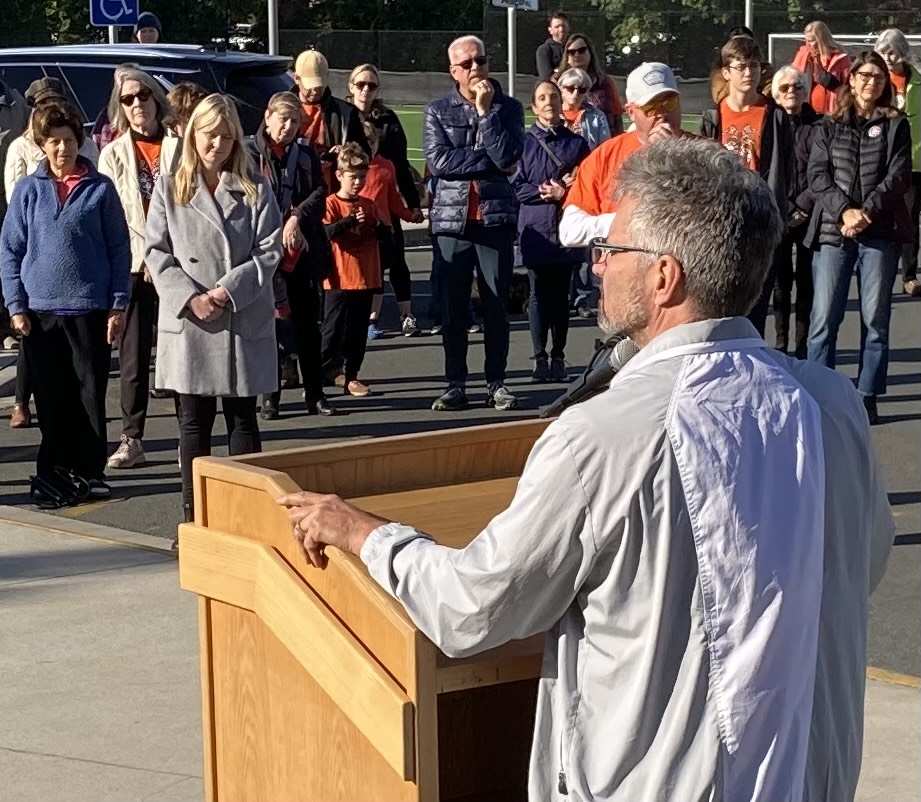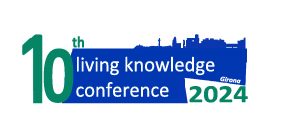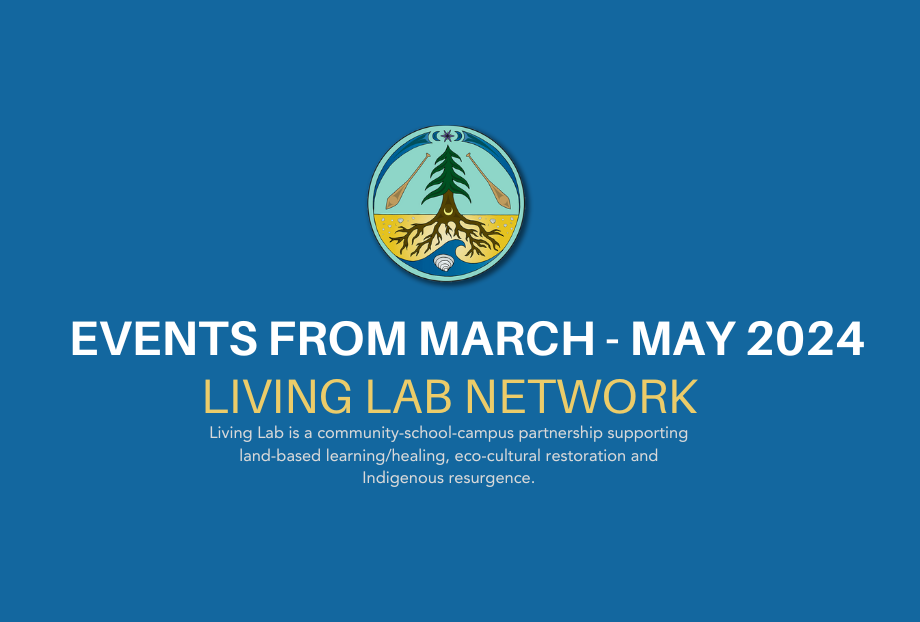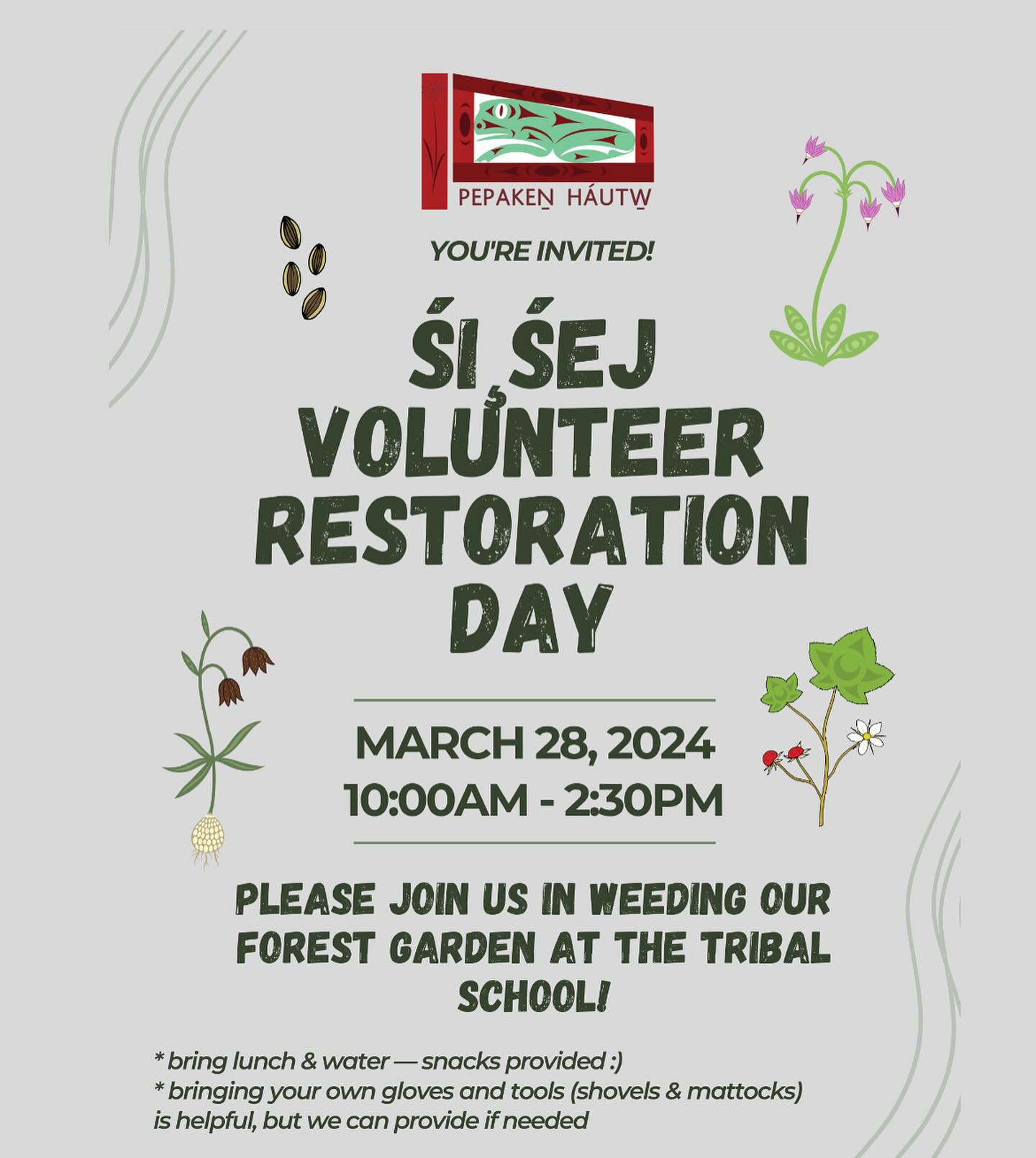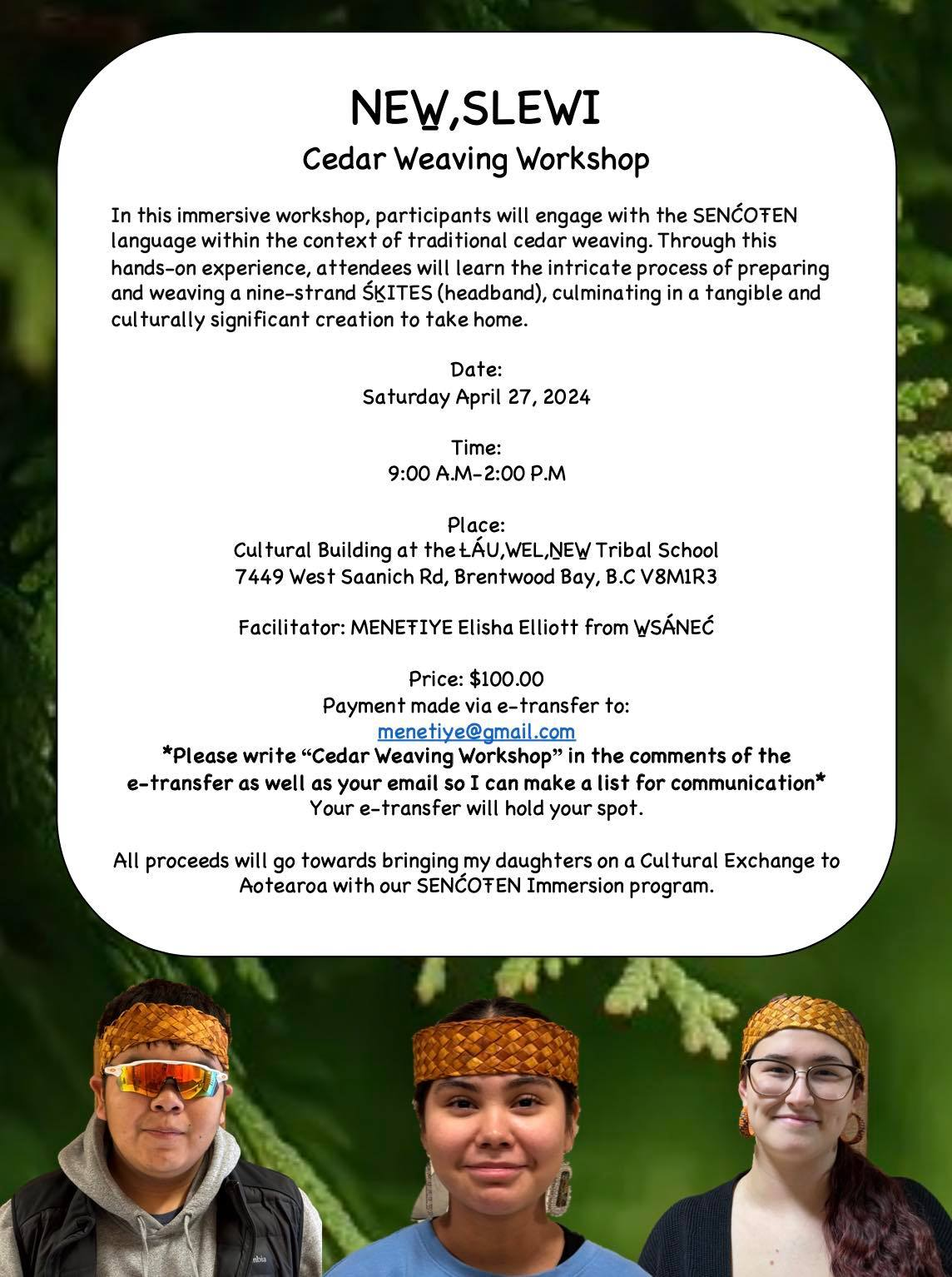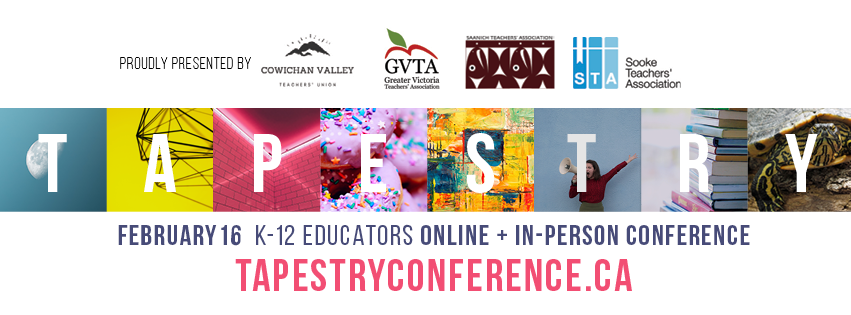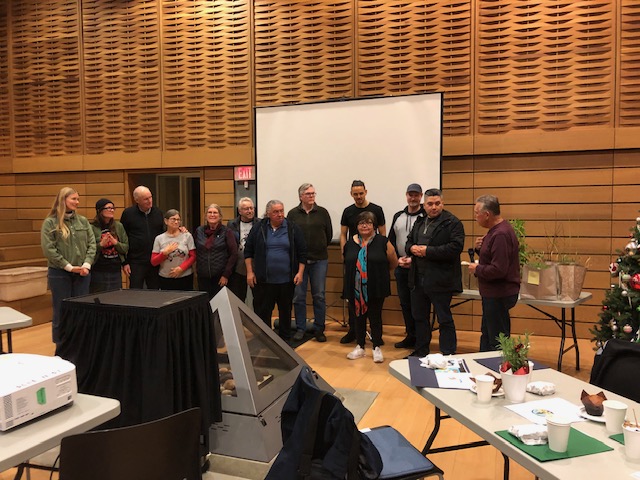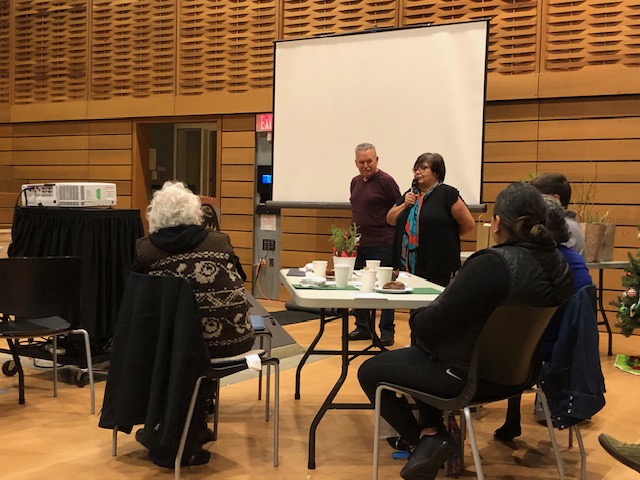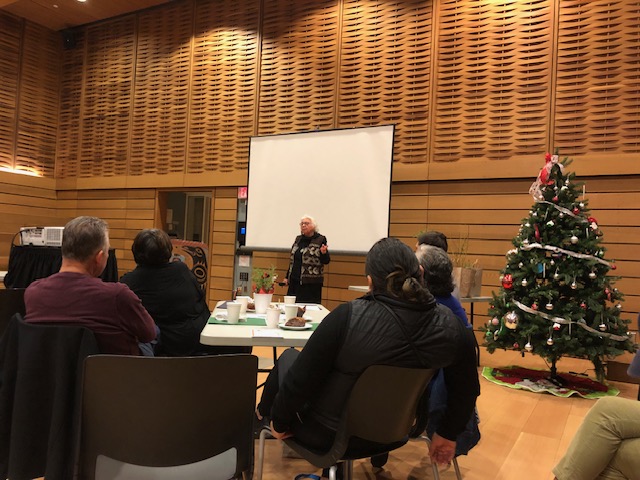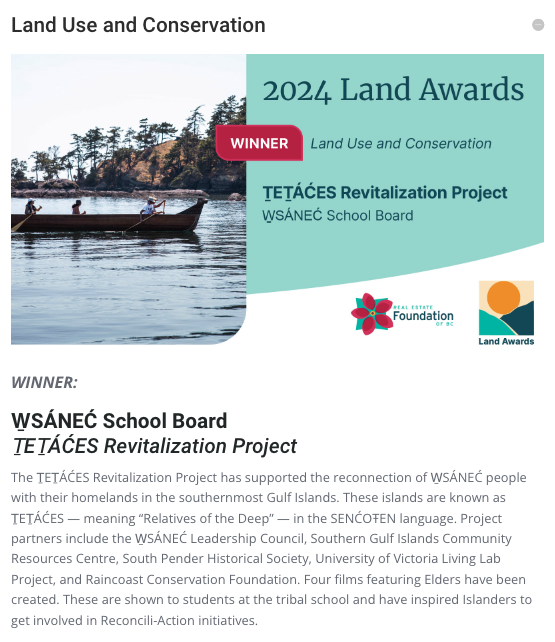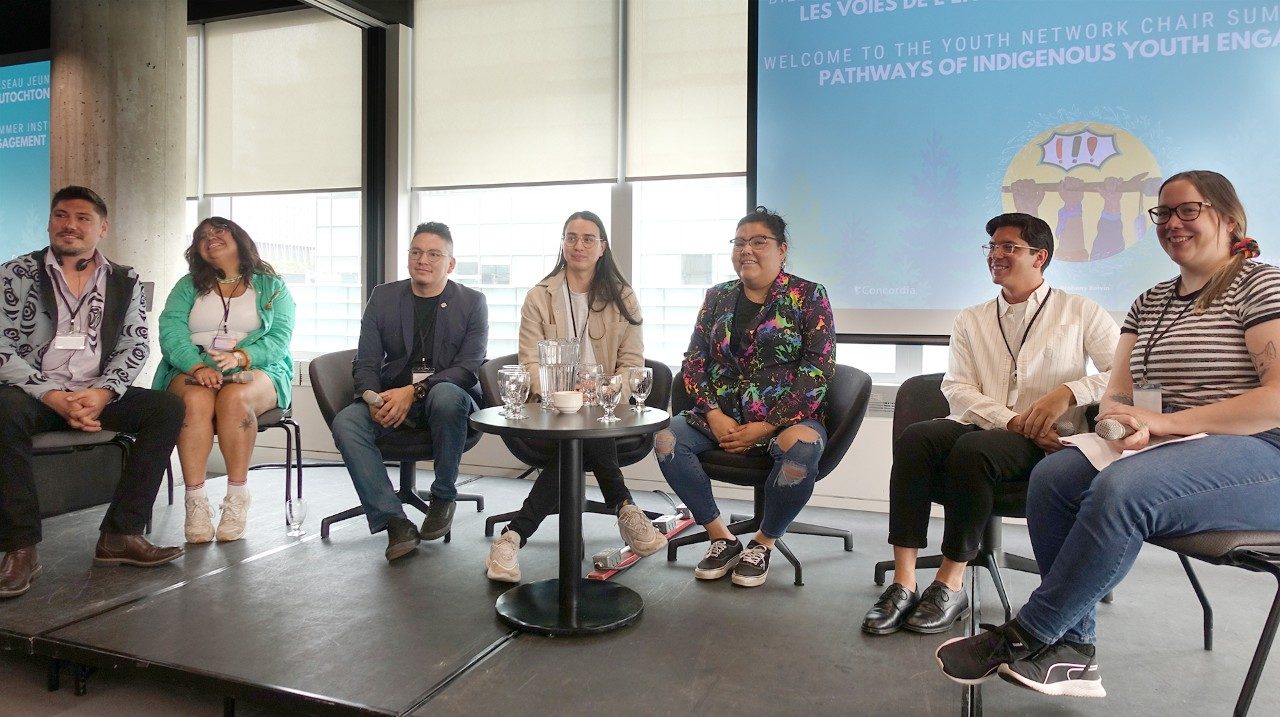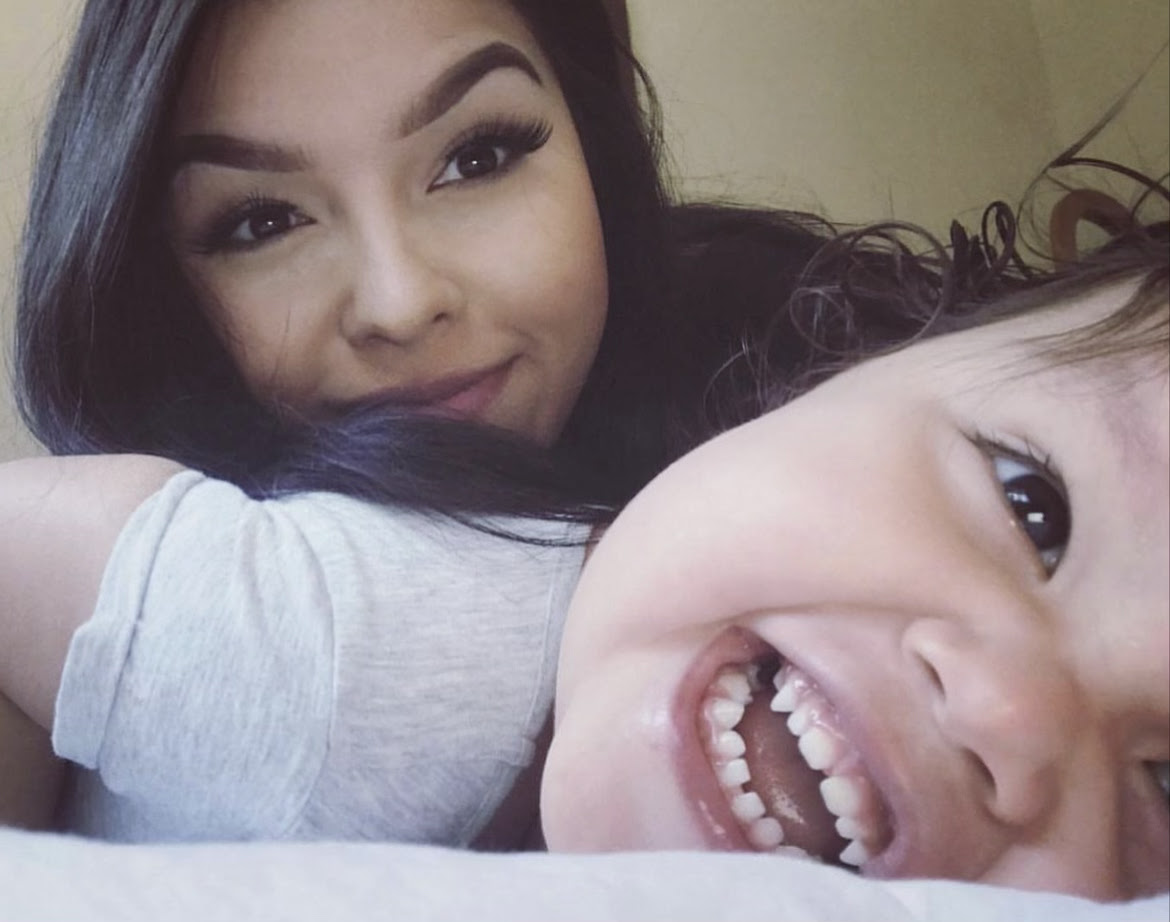Discover our relatives through the Living Lab Insect Guide, which highlights insect species found across the traditional territories of the Coast Salish Peoples. Learn their names in W̱SÁNEĆ (SENĆOŦEN), Songhees–Esquimalt (lək̓ʷəŋən), English, and Latin. The guide features contributions from knowledge holders SELILIYE (Belinda Claxton), J,SIṈTEN (John Elliott Sr.), ȻOSINIYE (Linda Elliott), SX̱EDŦELISIYE (Renee Sampson), TE,TES,ȾE (Lyndsey Henry), and Tye Swallow. Graphics and layout by Jessica Joseph and Kyle Clarke.
ṮEṮÁĆES Restoration Initiative
The latest Reconcili-action project from the ṮEṮÁĆES Team is called the ṮEṮÁĆES Restoration Initiative. It follows up on the ṮEṮÁĆES Climate Action and ṮEṮÁĆES Revitalization Projects. ṮEṮÁĆES means “Relatives of the Deep” and is the SENĆOŦEN word for the Gulf Islands.
The ṮEṮÁĆES Restoration Initiative is a signage project and will enhance cultural understanding by installing signage and educational artwork at key locations on S,DÁ,YES (Pender Island) that hold significance for the W̱SÁNEĆ people. Each installation will feature place names in SENĆOŦEN and English, explain its traditional significance, and include a QR code linking to educational content about its importance to the W̱SÁNEĆ people. Rose Spahan from Tsartlip Nation is curating the project and engaging W̱SÁNEĆ artists. Read More about this exciting Project.
The first of these installations was unveiled on August 8th at the ancient W̱SÁNEĆ village site of QENEN,IW̱, located at the site that Poets Cove Resort now occupies
The unveiling was accompanied by traditional dancing and signing and featured W̱SÁNEĆ Elders, including Hereditary Chief Eric Pelkey (W̱IĆKINEM) and Belinda Claxton (SELILIYE). The instillation is adjacent to the pre-existing W̱SÁNEĆ 13 moon calendar created by MENEŦIYE. The installation recognizes the long presence of the W̱SÁNEĆ in Bedwell Harbour and their Reef Net Fishery site there.
Photos: W̱SÁNEĆ community at project launch.
L to R: PENÁW̱EṈ – Pena Elliott, STIWET – James Elliott, SX̱EDŦELISIYE – Renee Sampson, J,SIṈTEN – John Elliott.
Living Knowledge Network Delegation to Girona, Spain June 26-29 2024
Exciting news! From June 26-29, a 12-person team from the Living Lab Network will present at the biannual European-based Living Knowledge Network (LKN) community-campus conference in Girona,
Spain. The team includes members from the Songhees, Tsartlip, Tsawout, Tseycum, Kwikwasut’inuxw, and Pauquachin Nations, the Métis Nation, staff, youth, and students from the W̱SÁNEĆ School Board, PEPAKEṈ HÁUTW̱ Foundation, SD#61 Indigenous Education, Living Lab staff, Raincoast Conservation Foundation, Camosun College’s Centre for Indigenous Education & Community Connections and UVic faculty. The Office of the Vice President of Indigenous and the Centre for Indigenous Research and Community-Led Engagement from the UVic provided core funding for Indigenous team members to present.
The delegation includes PENAC Underwood, SX̱ EDŦELISIYE (Renee Sampson), Desiree Jones, Jessica Joseph, Ruth Lyall, Judith Lyn Arney, Alex Harris, Kyle Clarke, Sarah Jim, Maeve Lydon, UVic Associate Professor Darcy Mathews, and Professor Heather Castleden.
LKN is a European-based and globally-connected network of individuals and organizations involved in Science Shops and similar entities. These organizations focus on public engagement and the involvement of Civil Society Organizations in Research & Innovation. Budd Hall, UVic Professor Emeritus with the School of Public Administration, Living Lab Advisor, and UNESCO Co-Chair in Community-Based Research and Social Responsibility in Higher Education, is a long-time active member and supporter of LKN. This network also supports the work of the UNESCO Chair. More information can be found on the UNESCO Chair’s website.
The Living Lab Network partners’ presentation titles include:
- ĆELÁṈEN TŦE ṮEṮÁĆES, the European premiere of a new feature film produced and narrated by W̱SÁNEĆ community members. (Premiered at UVic on December 11th; see the story in the Living Lab Newsletter)
- Relational Restoration: Healing Ourselves and the Land
- Archaeology and Indigenous Knowledge: Transformative and Decolonizing Science and Practice
- In-Spiring Citizen Science Supporting Ecosystem Restoration and Resurgence on the West Coast of Canada/Turtle Island: The Living Lab Network’s Indigenous Youth Stewardship Program
Our common goal for the Living Lab Network and this trip is to create long-term community-driven research, program partnerships, and youth-community-campus exchanges with European and global partners. We aim to represent a community-based Indigenous worldview of so-called “Canada” in Europe, led and spoken by community voices and priorities. Next-generation engagement, the conference theme, is at the heart of our everyday work.
Discover, participate in, and engage in immersive nature experiences, cultural workshops, and educational initiatives with HAT, PEPAKEṈ HÁUTW̱ Award, and Oak Haven Park. Explore indigenous markets, traditional cedar weaving, plant walks, and ongoing educational resources like The Cedar Box Experience. Read below to find out more about these events and how to join.
Restoration Opportunities with HAT with PEPAKEṈ HÁUTW̱ and friends of Oak Haven Park.
Mar 27th with PEPAKEṈ HÁUTW̱, located at SṈIDȻEȽ
April 26th at Tseycum
For more information, https://hat.bc.ca/volunteer.SI SEJ
SI SEJ Volunteer Restoration Day
March 28th with PEPAKEṈ HÁUTW̱ see poster for information.
Indigenous PopUp Shop YYJ Spring Artist Market
April 6th – Over 25 Indigenous artists gather to sell their creations at this handmade artists’ market. More information located here.
NEW,SLEWI, Cedar weaving workshop
April 27th: An immersive Cedar weaving workshop with facilitator, MENETIYE Elisha Elliott see poster below for information.
Indigenous Plant Walk
May 25th: Indigenous Plant Walk with the Compost Education Centre. Tickets can be booked here.
Ongoing: The Cedar Box Experience — an interactive educational resource which draws from the Tend, Gather and Grow Teaching Toolkit
Register NOW for Tapestry’s Changemakers in Action: Climate Across the Curriculum conference at Belmont Secondary on Friday, February 16, 2024.
This conference is for K-12 Teachers and Community Educators. It will be held from 8:30 to 3 PM on Friday,, February 16
Living Lab staff and network partners are excited to be presenting two workshops at this exciting event:
- Land-Based Learning
- Decolonizing Curriculum
Registration info is located here:
https://tapestryconference.ca/climate-action/custom-climate-action-overview
This event is proudly hosted by SSEEPSA – the Salish Sea Environmental Educator Professional Specialists Association.
Featured Photo (Core Production Team @ ĆELÁṈEN TŦE ṮEṮÁĆES Premiere at First People’s House)
On December 11th, the Living Lab community embraced a heartwarming and inspiring public film launch and presentation night, connecting 90-100 attendees at the First Peoples House, Ceremonial Hall at UVIC.
ĆELÁṈEN TŦE ṮEṮÁĆES, translating to “Birthright/heritage of/to/for our relatives of the deep” in SENĆOŦEN, refers to the islands in the Salish Sea in the traditional territories of the W̱SÁNEĆ and Coast Salish territory. The film features S,ḴŦAḴ (Mayne) and S,DÁYES (Pender) Islands. The film’s co-directors are SXEDTELISIYE (Renee Sampson) & Tye Swallow from the W̱SÁNEĆ School Board and WSANEC elders. Videographer Alex Harris is from the Raincoast Conservation Foundation.
The videos were produced by the ṮEṮÁĆES Revitalization Project, co-led by the Southern Gulf Island Community Resource Centre (CRC) and the W̱SÁNEĆ School Board (WSB) with core funding from the Real Estate Foundation of BC. Other funding and in-kind support were provided by several community partners, including the W̱SB, W̱SÁNEĆ Leadership Council, PEPAKEṈ HÁUTW̱ Foundation, Raincoast Conservation Foundation, the Living Lab Network and UVic, the South Pender Historical Society and the Capital Regional District.
The land sovereignty video, in particular, draws upon traditional knowledge and SENĆOŦEN language to help settlers understand that W̱SÁNEĆ people belong to the land and have for time immemorial. The video clearly explains why colonial notions of land ownership do not apply to W̱SÁNEĆ’s relationship with ṮEṮÁĆES.
The evening began with the animated ŦEŦÁĆES Origin story produced by PENAC Underwood, followed by ĆELÁṈEN TŦE ŦEŦÁĆES, a feature video focused on the W̱SÁNEĆ worldview, history and their relationship with their traditional territory focused on ṮELEṮÁĆES (Gulf Islands).
Respected W̱SÁNEĆ community members, including Elders SELILYEA (Belinda Claxton) and J’SINCTUN (John Elliott) and film animator/artist PENAC Underwood, shared reflections and critical messages, offering visions for the future.
Mavis Underwood, a W̱SÁNEĆ community member and LLab Advisor, discussed her recent Ph.D. research project in ȾIX̱EṈ/ȾEL¸IȽĆ-Cordova Bay, emphasizing the necessity of community-driven archaeology and land-based programs for true decolonization based on justice and healing.
Featured academic knowledge holders from the film included Robert (YELḰATŦE) Clifford, a WSANEC community member and Law Professor at UBC, and Darcy Mathews, EStudies Professor at UVic, who was also present at the premiere.
The WSANEC School Board recognizes the films’ impact and is committed to making the videos publicly available in the New Year, extending understanding and awareness to a broader audience.
Living Lab would like to thank the event partners for their support in bringing this event to life and everyone who participated in making the evening a success. Thank you!
JUNE 2024 UPDATE
At the 2024 Land Awards Gala, the Real Estate Foundation of BC (REFBC) presented awards to five projects and two individuals demonstrating exceptional leadership in sustainable, equitable, and socially just land use. ĆELÁṈEN TŦE ṮEṮÁĆES was awarded the winner in the Land Use and Conservation. Congratulations to the team for their incredible hard work.
Crossposted from The University of Concordia.
Indigenous youth, students and researchers gather for an empowering 5-day Concordia summer institute.
Youth from more than 10 Indigenous nations recently came together on Concordia’s Sir George Williams Campus as well as on the land in Kahnawá:ke for a unique summer institute.
The summer institute, called Pathways of Indigenous Youth, provided participants with an inspiring week of dialogue, learning, sharing of cultural knowledge, craft-making and collaboration focused on empowering the next generation.
Reflections by W̱SÁNEĆ – Lummi Nation Member
Desiree Jones
Breaking colonial boundaries and creating space to be back out on our traditional homelands is an approach to foster healing and reconciliation into existence; through this we can also reconnect with our relatives who reside across those border boundaries, as well as reconnecting and becoming familiar with the land that our ancestors often resided on and held knowledge of. Recently I had the opportunity to go to W̱ȾȺ,EMEṈ with the W̱SÁNEĆ Secondary School, Living Lab, White Swan Environmental, as well as Western Washington University. By bringing our W̱SÁNEĆ and Lummi communities together we were able to share songs, stories, and language, all of which are a direct connection to our ĆELAṈEN — our past, our identities, and our ancestors.
These aspects alone play a vital role within the healing and mending of these connections that we hold as First Nations. Through this experience I was able to create many connections not only with our SĆÁLEĆE, but also with the land and my history as a W̱SÁNEĆ woman, and continuing to create opportunities such as this for the youth and future generations is a testimony to our resilience which can dismantle the barriers that were placed upon us by colonialism. W̱ȾȺ,EMEṈ will not only hold a place in my heart, but also the youth who will be the future generations to keep carrying on our traditions of getting out to our ṮEṮÁĆES.”
HÍSW̱ḴE SIÁM
By: Desiree Jones, W̱SÁNEĆ and Lummi Nation. W̱SÁNEĆ School Board Senior Language Apprentice and Living Lab – WSB staff liaison
